75th Anniversary of Indonesian Independence Day
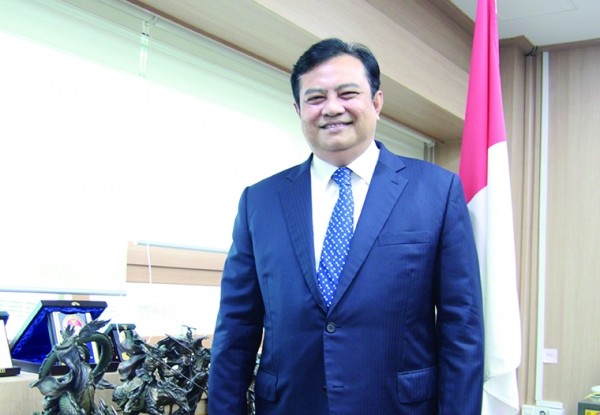
On the special occasion of Indonesian 75th anniversary of Independence, The Korea Ambassadors Culture & Friendship Association and ‘SeoulCity’ Korean & English magazine interviews H.E. Umar Hadi on the prospects of bilateral economic ties between Indonesia and Korea. Following are the full texts of the interview.
Please introduce the significance of the Independence Day of August 17th
For Indonesians, Independence Day has always been a special occasion, and this year marked the 75th years of Indonesia Independence Day. Indonesians commemorate this special day by holding ceremonies and other activities to honour and appreciate the sacrifice and struggle for freedom shown by our heroes in the past. Indonesians also use this occasion as a reflection of what we have achieved in the past years and what are the challenges that we might face in the future in order to push the progress and national development to benefit our people and nation.
This year’s theme for Indonesia Independence Day is “Indonesia Maju” (Indonesia Advances) which symbolized the commitment and dedication to strengthen national sovereignty and unity to pursue greater achievements and prosperity in various fields and aspects. Indonesia also aim to become developed country under the Indonesia Vision 2045, which requires strong foundation on infrastructures to support development; able human resources through education, research, health program and social protection; technology support through innovation enrichment and industrial related technology; revamped government bureaucracy; and integrated system and financial resources support.
COVID-19 pandemic is posing a great challenge to Indonesia, as well as any other countries in the world, this year. Indonesia has utilized all of its resources in fighting and handling the virus to prevent it to spread further in Indonesia. The government has applied various policies and regulations and put forward public safety and health as the main priorities. So far, the meassures are positive in handling the pandemic domestically and Indonesia puts its outmost efforts to contribute to the global community fight against COVID-19 through innovation of medical equipments, medical equipments production, medicines and vaccine research and tests. Although it is going to be a tough year, with the spirit of the 75th Indonesia Independence Day, I am optimistic that Indonesia will overcome the pandemic’s negative impacts and move forward with the progress and national development.
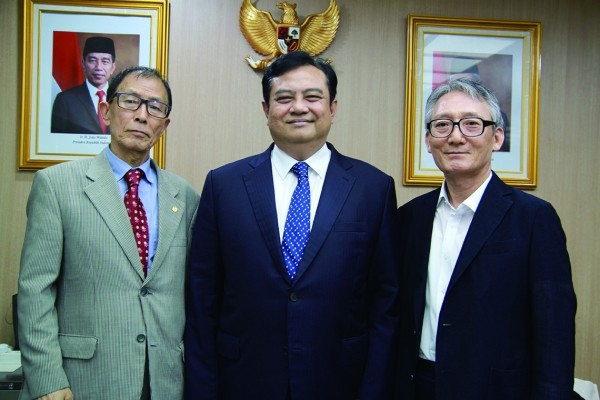
Please tel us the brief history of diplomatic relations between Indonesia and Korea
The diplomatic relations between the two countries was established in September 1973 but the consular-level relationship had already begun in August 1966. Since then, the two countries continued to improve relations and cooperation at the bilateral, regional and even multilateral-level. The relations and cooperation at bilateral-level entered a new phase on the state visit of the President of the Republic Korea Moon Jae-in to Indonesia on November 8-10, 2017. Two leaders agreed to elevate the bilateral relations to a special strategic partnership through the “Korea-Indonesia Joint Vision Statement for Co-Prosperity and Peace" which focuses on four areas of cooperation, include: defense and foreign affairs, bilateral trade and infrastructure development, people-to-people exchanges, and regional & global cooperation.
Their robust relations and bilateral cooperation are supported by the resource complementarity and the remarkable process of economic and political progress of both countries which opens more widely the opportunity for cooperation in various sector. Furthermore, two countries also actively support each other in various forum at regional and international-level, such as the nomination of each candidature to the international organizations.
The close ties between Indonesia and Republic of Korea could also be seen from the intensity visit of the high dignitaries of both countries. Below are the number of important visits in the past few years:
- State Visit by the President of the Republic of Indonesia Joko Widodo to Busan to attend the 25th ASEAN-ROK Commemorative Summit and Bilateral Meeting, December 10-12 2014;
- State Visit by the Vice President of the Republic of Indonesia Jusuf Kalla, August 26-30 2015;
- State Visit by the President of the Republic of Indonesia Joko Widodo to Seoul, May 15-18 2016;
- State Visit by the President of the Republic of Korea Moon Jae-in to Indonesia, November 8-10 2017;
- Official Visit by the Prime Minister of the Republic of Korea Lee Nak-yeon to Indonesia, August 2018;
- State Visit by the President of the Republic of Indonesia Joko Widodo to Seoul, September 8-10 2018;
- Official visit of President of the Republic of Indonesia, Joko Widodo, to participate in the ASEAN-ROK Commemorative Summit in Busan on November 2019
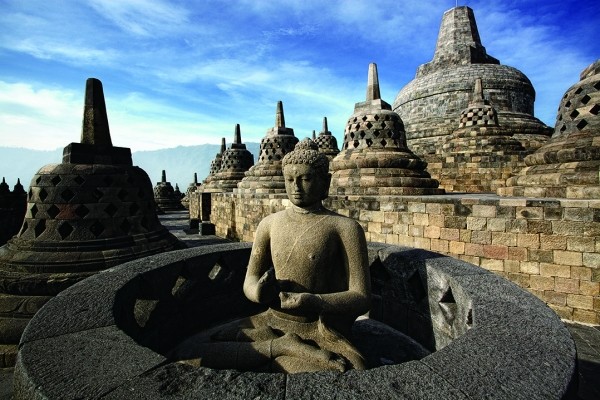
Would you please let us know what industrial sectors would be most promising for Korean companies to invest in Indonesia?
The Indonesian government is currently focused on strengthening the foundations towards “Making Indonesia 4.0”. This implies that Indonesia will focus on strengthening its industrial sector towards a more modern and digitalized transformation of the entire manufacturing/production and value creation process, mainly in five sectors: automotive, chemicals, electronics, textile, as well as food & beverage.
It would be in the best interest of potential Korean investors to capitalize in establishing a sustainable partnership between Korean and Indonesian industrial actors in these five sectors. Since the priority is to advance towards a 4th industrial revolution, Korean investors would then need to emphasize on strengthening industrial partnership with Indonesia by investing in projects that enables sustained demand, increased productivity, and efficient use of resources through continuous innovation.
As we gradually enter the post-pandemic phase, there is a growing need for industrial advancements to be more autonomous These investment projects may include ventures such as - but not limited to - automotive manufacturing technology for diversed mobility or development of a human-machine interface for maintaining health standards in the F&B sector. There is also the need for utilization of big data and artificial intelligence, as well as data accessibility through remote working.
Another prospective sector is the bio-pharma and medical devices industry. Korea may seek to expand its successive model in testing, tracking, and treatment of infectious diseases by setting up production or research facilities in Indonesia. Such enterprise may enable Korea to not only optimize its distribution of medical products/treatments by utilizing the resources and incentives available in Indonesia, but to also play a greater role for the advancements of medicine and biopharma products in South East Asia and even Asia Pacific.
You may be aware that Indonesia currently has the 4th largest population in the world, with approximately 270 million people. Indonesia enjoys its demographic bonus, with 70% of population (180 million) expected to be in their productive age in the years of 2020-2035. Indonesia is also the largest country in South East Asia with potential market access to about 650 million people in the region. Therefore, the market, demand, and resource for potential Korean investors are abundant in Indonesia.
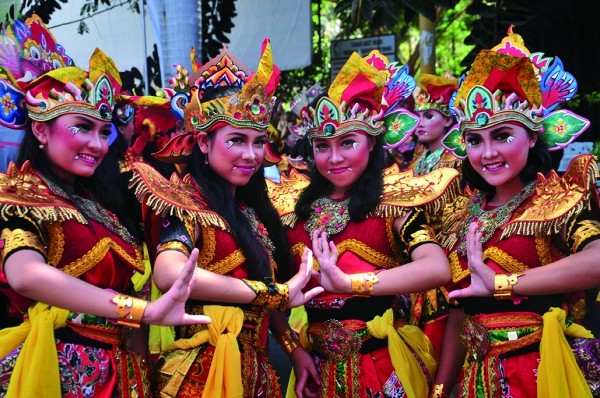
Please introduce foreign investment environments of Indonesia for Korean potential investors and introduce some outstanding Korean company activities in Indonesia.
IIndonesia has managed to regain investment grade across all major rating agencies and has become a much easier place to do business, creating a more favorable investment climate. Indonesia is also in position to be the 4th largest economy in the world by 2050. At the second quarter of 2020, Korea became part of the top 5 countries who invest in Indonesia. This shows the trust that Korean investors have in the potential of Indonesia as an overseas investment destination.
In the second term of his administration, H.E. President Joko Widodo re-emphasized the importance of creating a favorable investment climate for investors. Through Presidential Decree Number 7 Year 2019, the president gave a mandate to synchronize the overlap of regulations, simplify the procedures for acquiring business licenses, and assign all forms of licensing and investment incentives through a single agency which is the Indonesia Investment Coordinating Board (BKPM).
To encourage investment, the Indonesian government have, among other things, digitalized investment licensing through an “Online Single Submission” as an integrated online system, opened a 100% ownership scheme for FDI in most manufacturing industries, and provide government incentives to ease investment activities in Indonesia. These include fiscal incentives such as tax holidays, tax allowance, and a super deductible tax of up to 300% for investments that allocate capital for establishing an R&D center or provide internship training.
The Indonesian government have also submitted a comprehensive draft bill to the Indonesian parliament known as the omnibus law. This omnibus law aims to strengthen existing regulations by simplifying business license processes across many sectors. Once the omnibus law is fully consolidated, it will increase Indonesia’s competitiveness, create jobs, and make it easier to conduct business in Indonesia.
Regarding Korean companies’ activities in Indonesia, as many of you already know, Hyundai Motor Company has recently established a factory in Indonesia. Hyundai Motor will focus on investing in the car manufacturing plant located in West Java and will export at least 50% of its total production by 2021.
State-owned PT. Pertamina in Indonesia also has signed a contract with Hyundai Engineering Co. Ltd. to provide engineering, procurement, and construction for the Balikpapan Refining Development Master Plan (RDMP) project valued at USD 3.9 billion.
We also have PT. KRAKATAU POSCO which is located in a small city called Cilegon in Indonesia, about 100 km from Jakarta. PT. KRAKATAU POSCO is the first integrated steelworks in Southeast Asia. It was established in 2010 as a joint venture company between PT. Krakatau Steel Tbk, Indonesia, and POSCO Korea. With 3 million tons of crude steel production capacity per year, there are a total of 2,390 employees working here including 2,250 local employees and 140 Korean employees.
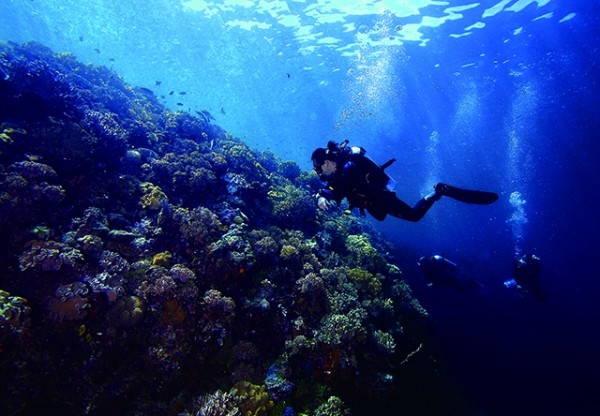
Please introduce tourists’ attractions in Indonesia for Korean tourists abroad.
Indonesia is a haven for tourists, and I say this with testament to many Koreans who have experienced first-hand just how beautiful and memorable their visit was to Indonesia.
Bali remains the top tourist destination for both domestic and international tourists. A recent survey shows that Bali is the number one most-wanted tourist destination that Koreans have put in their wish-list once the pandemic subsides. Therefore, the Indonesian government has placed measures to maintain the cleanliness, health, and safety of tourist activities in Bali as we proceed to the post-pandemic “new normal”. This is to ensure that visitors remain safe and are able to enjoy what Bali has to offer to the fullest.
Indonesia has more than 17,000 islands full of destinations which have unique and diverse sceneries. We introduce the 5 Super Priority Destinations, namely Lake Toba (North Sumatra), Borobudur (Central Java), Mandalika (West Nusa Tenggara), Labuan Bajo (East Nusa Tenggara) and Likupang (North Sulawesi).
By visiting the 5 Super Priority Destinations you can see the beauty of Indonesia whereas scenic natural landscapes blended with cultural diversity of its people. Enjoy the untouched beaches, mountains, lakes, and many more destinations as well as the magnificent city skylines throughout the country.
If you’re the adventurous type, you may try tackling the great Mount Bromo in East Java, where you set out to enjoy the sunrise from Mount Bromo - Tengger Semeru National Park located 2,300 meter above sea level. Another adventurous trail in East Java is the Ijen Crater, also known as the Blue Fire Volcano. You can head out to the base of the mountain at midnight and hike up to witness the electric blue flames inside the active volcano.
Religious tourism is also another attraction that Koreans may be interested in. As a melting pot of religious diversity, Indonesia is home to five religions (Islam, Christianity, Catholic, Hindu, Buddhism) and a variety of local beliefs. In Central Java you may experience Borobudur Temple, the largest Buddhist temple in the world. Just around one hour from Borobudur, you may visit Prambanan Temple, a 47-meter-high Hindu Temple that was built in the 9th century. This religious harmony is also present in the capital of Jakarta. Istiqlal Mosque is the largest mosque in South East Asia which is just across the street from the Jakarta Cathedral-a museum and place of worship for approximately 7 million Catholics in Indonesia.
Please let us know your point of view on how to strengthen further the close economic and cultural ties between Indonesia and Korea in the years to come.
In terms of economic relations, Indonesia is Korea’s trusted partner. Indonesia and Korea has uplifted our bilateral partnership status to a Special Strategic Partnership since 2017, making Indonesia the only country in ASEAN which has such a Special Strategic Partnership with Korea. This Special Strategic Partnership embodies the share values, principles, and priorities that both of our countries share.
I would encourage both Korean as well as Indonesian development actors and business enterprises to continue and excel the mutually beneficial relations that we have thus far. Indonesia is open for business, and it is the Indonesian government’s commitment to ensure that Korean business initiatives with Indonesian partners continues to be strategic, mutually beneficial, and long-lasting.
Culture can be a powerful tool to bring people together. We try to build a “Heart to Heart” understanding through cultural diversity. Our key message on Indonesia’s people to people connection is preserving and promoting Indonesia’s moderate and tolerant culture. Through understanding and celebrating diversity, Indonesia views the world as one humanity.
I think the most important part to enhance the mutual understanding between Indonesian and Koreans is how we tell the story itself. When you have a story to tell, you can choose the medium like film, music, dance, a novel or an article. As long as you can develop the idea and make it a compelling story that can reach the hearts of the people. A story that invokes emotions.
Last year, Indonesia has successfully initiated a large-scale festival that promoted its culture and businesses in Seoul in late September. The inaugural Festival Indonesia was part of efforts to implement people-to-people exchanges, one of the four areas of cooperation underlined in a special strategic partnership formed in 2017. Although due to the pandemic we cannot hold the same festival this year, I think this is the opportunity for us to prepare a cultural event in accordance with health protocol.
Though the world today is hindered by unfavorable circumstances, I believe that the strength of our partnership will enable both Korea and Indonesia to reap unprecedented opportunities and overcome shared challenges. Let’s work together. Let’s prosper together.

